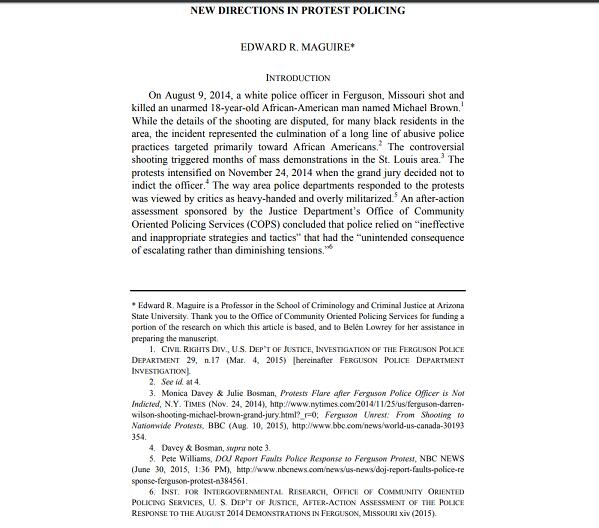New Directions in Protest Policing
This article examines protest policing practices in the U.S. and offers suggestions for improving how police prepare for and respond to protests and mass demonstrations. Part I of the article examines the police response to the protests that occurred in and around Ferguson, Missouri after the killing of Michael Brown. I focus in particular on the various civil rights violations committed by police officers against protesters and journalists. Part II establishes a broader historical context for thinking about how protest policing has evolved in the U.S. over the past fifty years. The police response to the protests in and around Ferguson did not occur in a vacuum; it was consistent with an unfortunate trajectory in the recent evolution of protest policing in the U.S. Part III provides a brief overview of two bodies of social science research – one on the psychology of compliance and defiance, and the other on crowd psychology – with direct implications for improving protest policing strategies. Part IV draws on this research evidence in outlining a new vision for protest policing in the U.S.
Documents:
|
|
